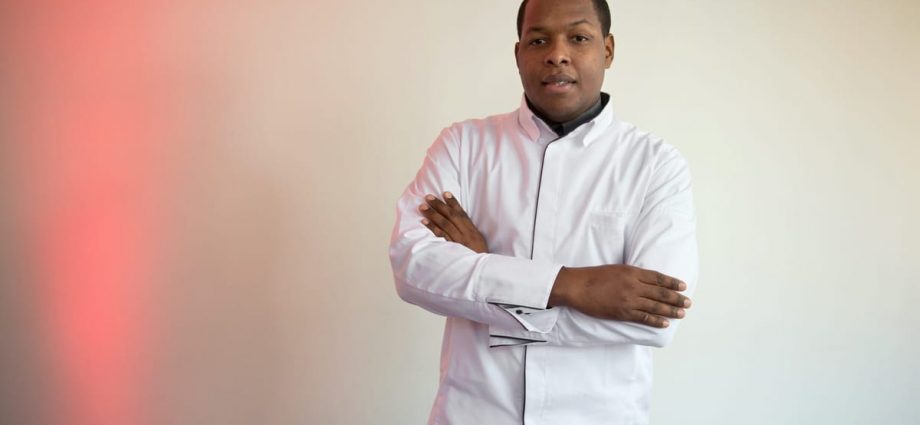Three decades ago, I wrote a book called “Burgundy Stars: A Year in the Life of a Great French Restaurant” about Loiseau’s rise and I later wrote a magazine article about his suicide and its aftermath. And so when I heard about a new chapter in the restaurant’s history, I was eager to visit and see what was in store.
At a moment in which the far right is in ascendance in France, with the anti-immigrant National Rally the country’s single-largest political party, a new chef has taken over the Côte d’Or’s famed kitchen — 40-year-old Louis-Philippe Vigilant. He’s a native of the Caribbean island of Martinique and he’s Black. What I wondered was what do the people of this predominantly white bastion of the rising right wing make of him?
As chef in the 1990s, Loiseau had embodied a particular type of Frenchness, straddling the modern and the traditional. He worked with local artisans: Colette, the goat cheesemaker; Daniel, the honey man; Jacques, the jam genius; and Jean-François, the snail producer. At the same time, he updated French haute cuisine, reducing cream and butter in his recipes for an increasingly urban population. Loiseau displayed showbiz promotion and global ambition, making frequent appearances on TV and opening bistros in Paris and even a restaurant in Japan. He produced frozen foods for supermarkets. And he took his company public on the Paris stock exchange.

But a dark cloud hovered above this beautiful blend of traditional and modern: Loiseau suffered from manic depression. France considered the disease shameful, to be hidden, and Loiseau failed to confront his self-destructive demons. When Spanish and Danish chefs reinvented fine dining with molecular cuisine and festive foraging, Loiseau feared being toppled from the pinnacle. In 2003, he committed suicide.
After his death, his widow, Dominique, took over. Haute cuisine is not friendly to women and one of my book’s secondary storylines describes Dominique’s struggle to fit in. In a just-published memoir, “A Woman’s Revenge,” she recounts how she felt “no choice except to continue.” Her husband’s legacy counted on it. Saulieu needed it — the restaurant is the town’s largest employer, with a payroll of 80. Although the Côte d’Or stayed in business, it struggled. As business stagnated and its stars started to fade away, Dominique sold off the profitable Parisian branches and retrenched in Burgundy. The bistro in Japan had been destroyed by an earthquake.
Alongside its star attraction. Saulieu slumped. The town’s population fell from 3,000 at the turn of the century to about 2,300, with almost a third over 65. Three decades ago, the city counted five doctors, four dentists and three architects. Today, it counts three doctors, one dentist and one architect. Three decades ago, 12 restaurants crowded the main Nationale 6 road, and crucially for any French town, five bakeries. Today, only six restaurants and three bakeries remain in business. “We’re an aging, dying town,” said Hubert Couilloud, the retired maître d’hôtel and Bernard’s longtime confidant.


